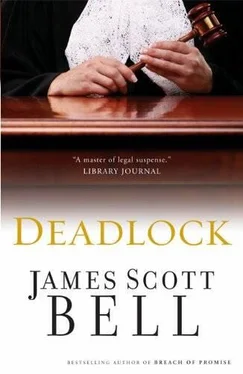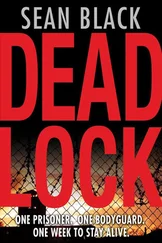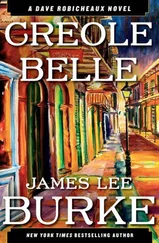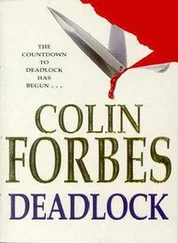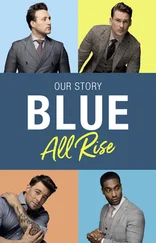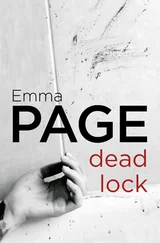“Sustained.”
“Sarah Mae,” Charlene said, “did the doctor allow you to look at a monitor so you could see what the sonogram showed?”
“No, ma’am.”
“Did he offer to let you see?”
Sarah Mae wiped a tear from her right eye. “No, ma’am.”
“Did he allow you to hear the ultrasound of the baby’s – excuse me – the sound of the heartbeat?”
“No. He didn’t turn on no sound.”
“And when this was finished, what did he tell you?”
Sarah Mae breathed in deeply. “He said I could have the abortion right then ’cause they had a slot.”
“A slot,” Charlene said slowly, just so the jury could hear it again. Implicit in the word was the abortion industry’s dirty little secret, that it was more a commercial venture than a health enterprise. Anything to fill those slots. Charlene hoped the jury would understand that.
“Did the doctor tell you anything about the risks of abortion?” Charlene asked.
“He gave me something to read.”
“What did he give you?”
“A paper.”
Charlene went to her counsel table and removed a sheet of paper from a file folder. She placed it in front of Sarah Mae Sherman. “Is this what they gave you to read?”
“Yes.”
“I would like to mark this as Plaintiff’s Four for identification,” Charlene said. It was a double-sided, single-spaced form that said, across the top “Things You Need to Know About Your Reproductive Choices.”
“You were given this by Dr. Sager?” Charlene asked.
“Yeah.”
“And what did you do with it?”
“Looked at it.”
“Did you read it?”
Sarah Mae shook her head. The judge said, “You must answer out loud for our reporter.”
“No,” Sarah Mae said.
“And why didn’t you read it?”
“It… I couldn’t understand it. I don’t read good.” Sarah Mae tugged at her dress.
“There is a place at the bottom where you are supposed to sign this form. Is that your signature at the bottom?”
“Yeah.”
“So you signed this form even though you did not read it?”
“Yeah.”
“Why, Sarah Mae?”
The girl’s eyes were full of regret. “’Cause that’s what I had to do to get it.”
“The abortion?”
Barely audible, Sarah Mae said, “Uh-huh.”
Charlene took the form and walked it to the clerk. As she returned to the witness box she stole a quick glance at the jury. Their faces melted together into a blank canvas. She saw features, but no expressions.
“Did Dr. Sager go over this form with you?” Charlene asked.
“No, ma’am.”
“Did he inquire into your health history?”
“No, ma’am.”
“Did he ask you how you were feeling about the procedure?”
Sarah Mae hesitated a moment. “He said something like that,” she said.
Like what? Charlene had no idea what Sarah Mae was referring to. They had gone over her story in Charlene’s office, and in the hotel last night. Her answer was out of the blue. And the worst thing that could happen to a lawyer in trial is one of her own witnesses saying something that scuttles the case.
This was a crucial moment, because the doctor’s conduct was at the very heart of this malpractice suit.
Worse, Charlene could not just skip to another question. If she did, Winsor would get the information for himself on cross-examination. That would look horrible to the jury, as if Charlene wanted to hide an answer.
What have you done this time, Charlene? She heard the phrase her mother used to say when Charlene got into serious trouble. What have you done this time?
“He did not get into any detail with you, did he?” Charlene said.
Winsor was on his feet. “Objection! That was clearly a leading question, Your Honor. Miss Moore is trying to lead her witness out of a situation she herself has – ”
“That’s sufficient,” Judge Lewis said, cutting Winsor off from making a speech in front of the jury. “I will sustain the objection.”
Charlene knew she had blown it. Winsor had managed to convey clearly enough that she had asked an improper question, and the judge had backed him up. Now she was in a corner. There was no way out.
“What was it that the doctor said to you, Sarah Mae?” Charlene asked.
Suddenly looking confused, Sarah Mae struggled to say, “Well, I can’t exactly remember, exactly…”
“As best you can.”
“Well, he did say something like if there was anything I wanted to say to him before we went in.”
This was the first Charlene had heard about it. Why hadn’t Sarah Mae said anything about this before?
“Did he say anything else to you before you went in?” Charlene said.
“I can’t remember.”
“The point is, he – ”
“Objection. Argumentative.”
“Sustained.”
Charlene cleared her throat. “When you went into the procedure, Sarah Mae, did you feel satisfied that you had been able to communicate to the doctor your feelings about what was about to happen?”
Sarah Mae shook her head with a slow, mournful look, as if she were lost in the woods. “I don’t rightly, exactly, remember.” Her eyes told Charlene she had no idea what she had done. And then those eyes gushed with tears.
Charlene looked at the judge. “Perhaps now would be a proper time for a break, Your Honor.”
Lewis nodded. “We’ll recess until ten-thirty,” he said. It sounded like he was announcing the time for an execution.
“Mom!”
Ethel was sprawled motionless on the kitchen floor.
“Mom, please, Mom.”
Millie knelt. Ethel was facedown, her left arm folded awkwardly under her body. Millie put her hands over her mother as if she wanted to do something, but could not figure out what. For an excruciating moment she felt as if she alone could determine whether her mother lived or died, yet at the same time her mind was a blank. Her hands trembled over the unmoving body of her mother.
Phone. Millie clambered to her feet and grabbed the kitchen phone. She punched 911. It took less than thirty seconds to give the dispatcher the information. But in this small town, how long would the ambulance take? The nearest full hospital was Bakersfield. Would her mother make it?
Returning to Ethel, Millie knelt and put her hand on her mother’s arm. It was so frail. Her skin felt like silk.
Millie saw the faint throb of a pulse in Ethel’s almost translucent neck and heard herself cry out, “Oh God, oh God, oh God.”
The words triggered her next desperate act. Grabbing the phone, she dialed information and got the number of the church. Then she called, hoping – praying – that Pastor Holden was in.
President John Warrington Francis took the cigar out of his mouth, looked at Senator Sam Levering, and said, “What would you do in this situation?”
Levering smiled, his lips curling around his own cigar. “I’d quit, go home, lick my wounds, admit I’m not the man I used to be.”
Francis said, “You know what crow tastes like? ’Cause that’s what you’re about to eat.”
The president leaned over to his golf bag and selected a five wood. His ball, a Slazenger 1, was embedded in the deep rough that lined the right side of the fairway. Levering knew full well that Francis was not going to quit. Francis was a three handicap, one of the benefits of growing up rich in the northeast, with a father who held two country club memberships.
Levering, on the other hand, was the typical weekend hacker. He hadn’t even taken up the game until he came to Washington. He was lucky to shoot in the nineties.
Francis inserted the smoldering cigar into his mouth as he approached the ball. No wonder this guy was president, Levering thought. He was handsome, trim, athletic, and smart. And he knew how to get out of a jam.
Читать дальше
